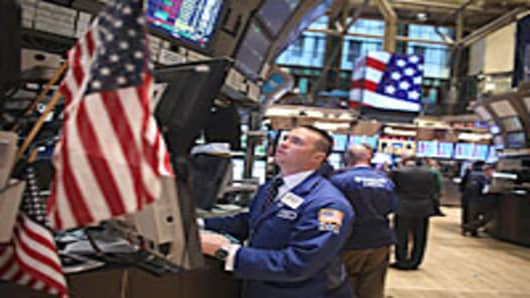So, it's all systems go for trading Wednesday. Let's hope. The key issue: testing the connectivity of the system. The NYSE, NASDAQ, and the other exchanges need to make sure their systems connect to their customers (brokerage firms, etc.) with no problems.
The problem: many of the New York-based firms will be operating with greatly reduced staff numbers and some may be working from alternate trading sites. That increases the odds that something could go wrong.
And some of those that are staying in their usual place have no power. They are operating on generators. Some firms, I am told, spent a good part of the day making sure they had fuel for their generators. Glamorous, no?
(Read more: The NYSE Mulls the Reopening)
The post-mortem: what should be different next time? OK, it's a little early for a post-mortem, but this bugs me: this was the only time the NYSE had the opportunity to use their contingency plan (i.e. open without the floor and trade exclusively through Arca, their electronic system), and they passed up the opportunity and decided not to open the markets.
They passed because: 1) many market participants were not able to be physically present for an open on Monday, and no wanted to put anyone in harm's way, and 2) there was some concern about how well all the systems would hold up in the aftermath of the storm.
The trading community did the right thing by closing. But that doesn't mean I can't make a recommendation:
1) Have a genuine backup plan! NYSE CEO Duncan Niederauer was quite blunt about this when I asked him about it on the air: "I think one thing that's clear is that we all need to sit down and just have a candid conversation about how seriously we need to take these contingency plans and whether we need to mandate testing and get the regulators involved."
(Read more: How the Fed Fought Sandy)
Amen! One thing's for sure: these "once in a century" storms are occurring a lot more frequently than once in a century...they're occurring every few years now. There will likely be more of these tests coming in the future. Our trading systems should be up for them.
I hate to call for more regulation, but that's what it's going to take. Greater regulatory oversight of technology...a focus on contingency planning....disaster recovery connectivity. Nerdy stuff, but necessary.
And one question: is it time to seriously de-centralize equity trading? New York based firms objected to the idea that the exchanges would open without them participating (can you imagine the dialogue on the conference call: "We're Goldman Sachs! You can't open without us!"). It may be nice to claim that New York is still the center of equity trading, but is that bad risk management?
(Read more: El-Erian: What Super Storm Sandy Means for the Markets)
After all, there are firms that could have traded Monday that are not in New York: GETCO, Tradebot, Virtu, could still trade. Boston firms. Small retail guys around the world might want to trade. Many high-frequency trading firms.
Here's my prediction: in a few years, this will not matter as much. The NYSE, in a pinch, will be able to open without the floor if necessary and be fully electronic. Market participants (buy and sell side firms) will be able to trade from decentralized locations. And that's not an argument in favor of eliminating the NYSE floor (I am a staunch supporter), it's just good risk management.
—By CNBC's Bob Pisani
_____________________________
Bookmark CNBC Data Pages:
_____________________________
Want updates whenever a Trader Talk blog is filed? Follow me on Twitter: twitter.com/BobPisani.
Questions? Comments? tradertalk@cnbc.com



